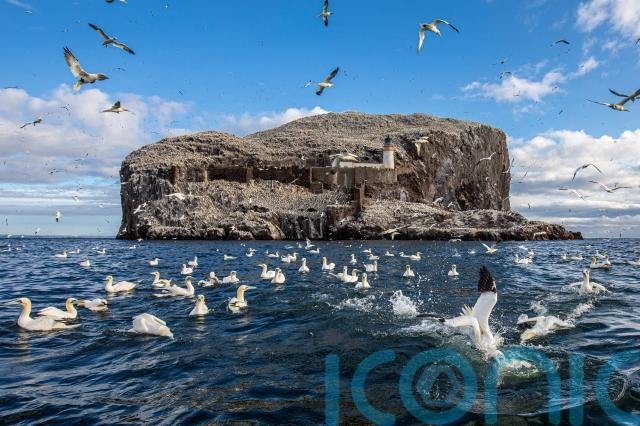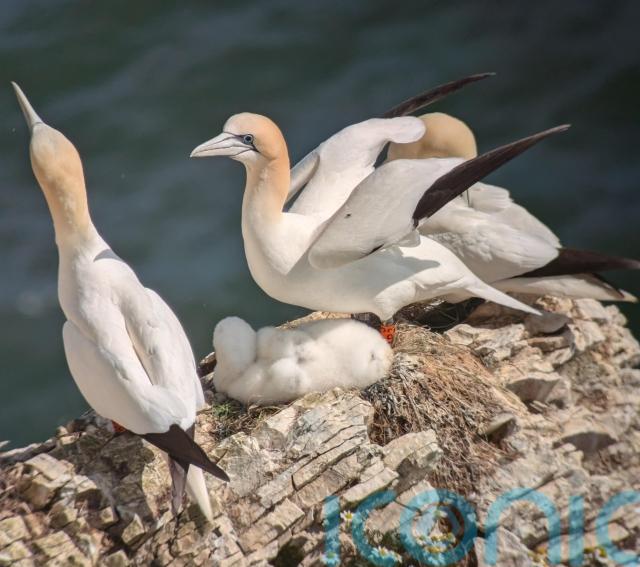
Seabirds that have survived bird flu are continuing to reproduce, but low-breeding performance is a “serious concern”, researchers have said.
A new paper led by Edinburgh Napier University’s Dr Sue Lewis studied breeding success in northern gannets at the Bass Rock off East Lothian and Bempton Cliffs in Yorkshire during 2023.
Researchers noted that bird flu hit seabirds across Europe and North America particularly hard from 2021-23, with gannets among the species to suffer most.

Scientists monitored the breeding success of birds with black eyes, a side-effect of avian influenza that can linger for life, compared with their uninfected counterparts which have blue eyes.
The researchers found no difference in breeding rates across both groups, but said success was lower than normal with nest failure rates far worse than the average.
At Bass Rock, previously the world’s largest gannet colony until the 2021-23 outbreak, parenting duos fledged an average of 0.56 chicks, compared with 0.78 in the 1960s.
At Bempton Cliffs, the success rate was 0.62 chicks per pair, down from 0.81 between 2009 and 2021.
Researchers believe the drop could be due to birds’ partners dying in the epidemic, meaning they had to find another who may be inexperienced as a breeder.
Issues with nesting since the flu outbreak may have played an additional role, and the paper says the 2023 summer heatwave could also have curbed births.

Dr Lewis said: “While it is reassuring that gannets that recovered from avian flu are able to breed, the overall reduction in breeding success is a serious concern.
“The results suggest that population recovery may be slower than hoped, even if survivors are still able to breed.
“Survivors are breeding as well as their peers, proving that gannets are remarkably resilient birds.
“But with bird flu still circulating and climate extremes adding new pressures, continued vigilance is needed to ensure that these majestic plunge diving birds remain part of our coastal environment for generations to come.”
Dr Jude Lane, from the RSPB’s centre for conservation science said: “(Avian flu) has had a devastating impact on many of our seabird populations, which are already facing increasing threats from development and climate change.
“Long-term monitoring will be key to tracking their recovery and understanding whether HPAI (highly pathogenic avian influenza) infections have hidden effects on survival or behaviour.
“However, it is essential we also take steps to secure long-term resilience for seabirds, such as protecting feeding grounds and reducing bycatch.”
Subscribe or register today to discover more from DonegalLive.ie
Buy the e-paper of the Donegal Democrat, Donegal People's Press, Donegal Post and Inish Times here for instant access to Donegal's premier news titles.
Keep up with the latest news from Donegal with our daily newsletter featuring the most important stories of the day delivered to your inbox every evening at 5pm.